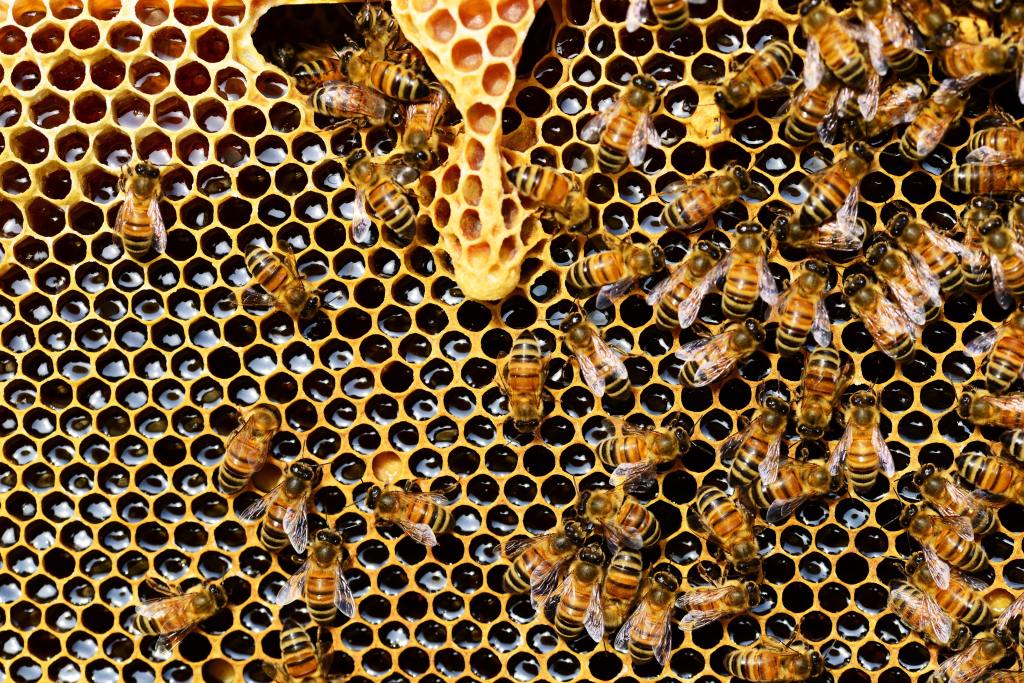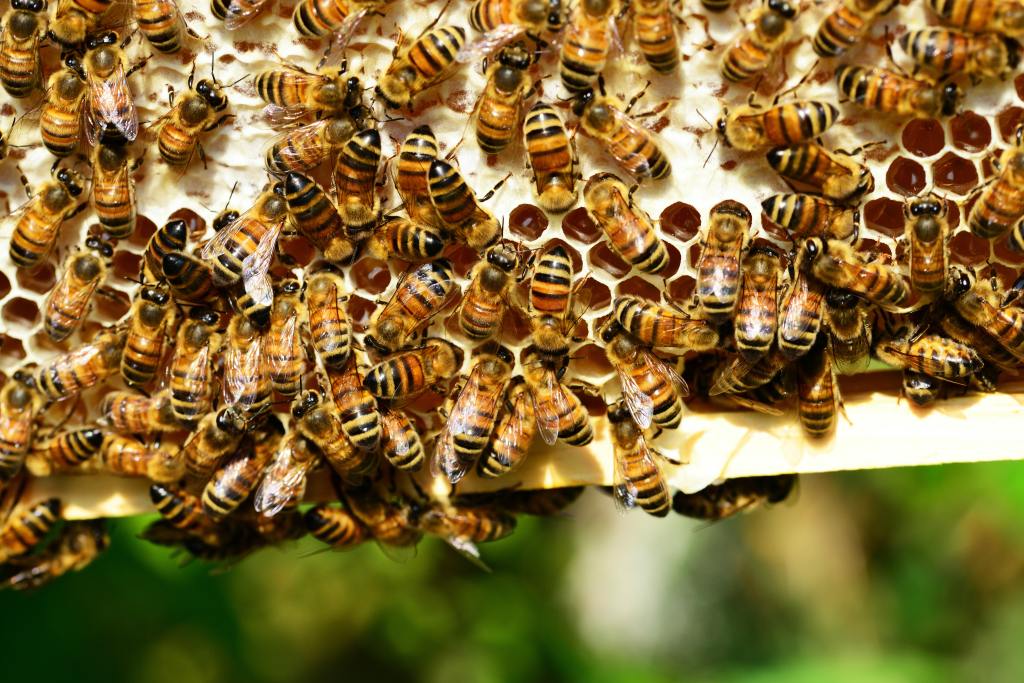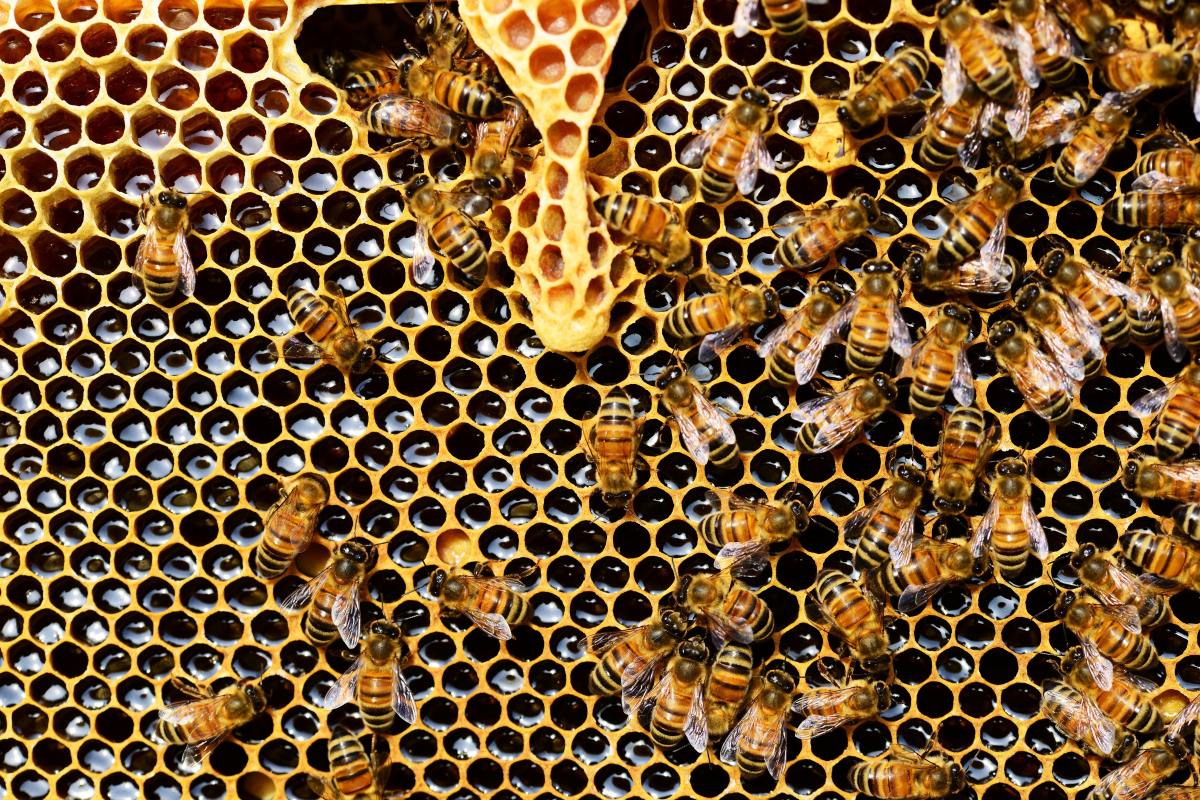In addition, I saw beautiful hand-blown glass honey talismans to taste the many exotic types of honey. A drop of air whizzing through the sticky golden liquid attracted my attention. The image of these bubbles filled with honey stuck in my mind.

When I was young, my mother instilled in me a love for honey.
He taught me about light colored sweet linden honey and golden caramel buckwheat honey, explaining the difference in taste and texture. I was fascinated that tiny pollinators (bees) could collect nectar from flowers all around us to create something so powerful, delicious and healing.
I don’t remember exactly when I first learned that bees were in danger. I read that Einstein predicted human extinction 4 years after the bees disappeared. The idea intrigued me and I started learning more about bees, pollination, and bee products.
Many of my friends and students think that all honey is created equal.
However, most people agree that local honey tastes far better than your typical supermarket variety. A few years ago I learned that imported honey sold in many stores contains heavy metals, antibiotics and other additives.
I was also surprised to learn that a lot of imported honey is filtered to prevent contaminants and impurities from being imported here. However, during this process, many medicinal compounds (such as bee pollen and others) have been filtered out. This process essentially turns honey into “sugar water”, eliminating most of its beneficial properties.
As a result, I was inspired to learn more about local honey. Last spring I attended a conference where local beekeepers were discussing the significant decline in bee populations. Some of the main causes cited include human use of pesticides and insecticides.
I began to delve deeper into the idea of beekeeping. As a city dweller I never thought it would be possible to have a beehive where I live. I was excited to learn that more urbanites are trying this noble and meditative activity. Are you one of them?
Several local colleges have recently found their own hive. None of them produce honey in large quantities, but serve as an inspiration and educational opportunity for students to learn about these amazing pollinators and the highly medicinal products (such as propolis, bee pollen and wax) Is.
There are many traditional oral and topical medicinal uses for this divine food.
These include cough, rhinitis, asthma, diarrhea, ulcers, wound healing, sunburn, diabetic foot, cataract, and more. As you know honey is used as a sweetening agent. It has also been used in the cosmetic industry (eg, creams and soaps).

Today, I want to share with you 5 research-based uses of honey.
- Wound healing
There has been a lot of interesting research done on the benefits of honey for wound healing – wound dressings, post-surgical wounds, foot ulcers, diabetic foot ulcers, pressure ulcers, burns, cuts, scrapes, abscesses and even to skin grafts. Honey helps to clean wounds, reduce infection, odor, pain, scarring, prolong healing time, and enhance healing. Manuka honey was used in many of these experiments.
Honey has been compared to conventional treatments such as silver sulfadiazine, povidone iodine, hypochlorite solutions, hydrocolloid dressings, saline-soaked gauze. In many cases it either outperforms these or is comparable in effectiveness. These are the two latest updates on wound healing.
- Burning
Honey is used for deep layer burns of the skin (partial thickness burns). When honey is applied directly to a burn as a wound dressing, it has been compared to traditional medicines such as silver sulfadiazine.
- Radiation mucositis
Based on an analysis of several research trials, patients who used honey were 80% less likely to develop oral mucositis after radiation than those who did not use honey. Another analysis looked at research on patients with head and neck cancer. Honey was also used as a prophylaxis against mucositis, and in other trials helped reduce ulcers, painful swallowing, progression of inflammation, and weight loss. - Cough
When honey is used before bedtime, cough is reduced (resulting in severity, frequency, and better sleep) in young children (older than 2 years) with upper respiratory infections. Honey is more effective than traditional cough suppressants such as dextromethorphan and the antihistamine diphenhydramine. - Diabetes
Some research suggests that consuming honey daily may lower fasting blood sugar, cholesterol levels, and even enhance weight loss in patients with diabetes.
You probably know that honey should not be given to children below the age of 1 year. An additional safety precaution to keep in mind is that honey produced from the sap of rhododendron plants.
You probably know that honey should not be given to children below the age of 1 year. An additional safety precaution to keep in mind is that honey.

Nice artical
LikeLike